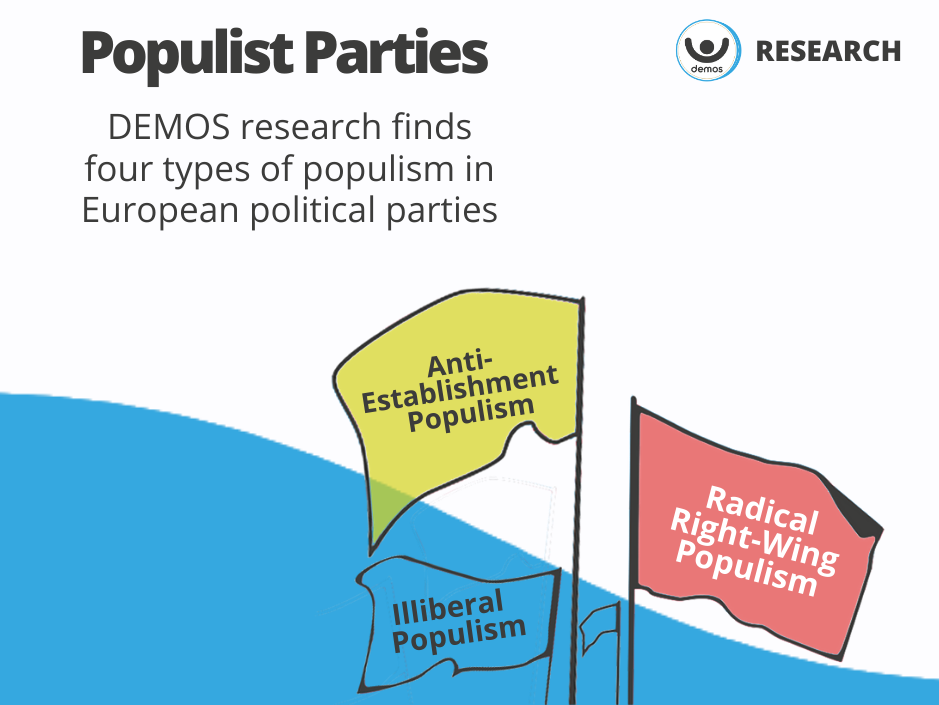DEMOS Identifies Four Types of Populism in European Political Parties
* Research investigated 17 populist parties and movements in Europe. * Analysis revealed four types of populism: radical left-wing, radical right-wing, illiberal, and anti-establishment. * More knowledge about populism makes society learn what to expect from populist actors. A new DEMOS research identified four types of populism in political parties and movements in Europe. These include radical left-wing and right-wing populisms as well as illiberal and anti-establishment populisms. (Read more about them and download the research below.) The study, which investigated 17 populist parties and movements, fills a void in research on comparative party populism and offers a unique insight into their social, political, and historical developments. Instead of creating a party type, the research focused on parties which use populism as part of their public appeal, since parties can differ in other aspects. “By knowing better the different types of populism, we can understand what to expect from the various types of populist parties and actors,” Martin Mejstřík from Charles University in Prague says. With DEMOS researcher Michal Kubát, Mejstřík led and edited the comparative analysis of populist parties and movements carried out by 14 national DEMOS teams across Europe. Further Reading Read more information about the study, and download the open-access working paper on populist parties, on the DEMOS website: https://demos-h2020.eu/en/demos-identifies-four-types-of-populism-in-european-political-parties
Keywords
Populism, DEMOS, Populist Parties, Europe, policymaking, Democratic Efficacy



